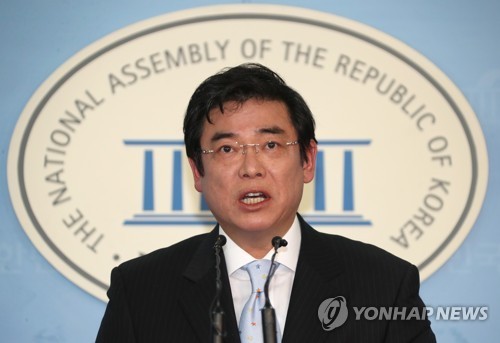
Seoul's defense ministry announced the plan to begin the allies' Foal Eagle/Key Resolve drills in Korea, which were delayed during an Olympic detente, on April 1 at a scale "similar" to that of previous years.
But speculation has persisted that the maneuvers will proceed in a low-key manner to avoid undermining the growing conciliatory mood ahead of the inter-Korean summit and the first U.S.-North Korea summit, which are slated for next month and May, respectively.
"It seems that our military cares about (North Korean leader) Kim Jong-un's feelings," Hong Ji-man, the party's spokesman, said in a written commentary. "Reducing the level of drills and the military trust between South Korea and the U.S. will send the wrong signal to the North."
LKP Rep. Kim Hack-yong, who chairs the parliament's defense committee, also denounced what he views as the military authorities' move to scale back the upcoming drills.
"What we have been concerned about has become a reality," he said, voicing regret over a "decision friendly to Pyongyang."
"The scaled-back drills will be a strategic misjudgment that will result in a crack in the South Korea-U.S. alliance and cooperation with our partner countries in the world and send the wrong signal to Kim Jong-un," he added.
Kim then called on the government to continue sanctions and pressure to achieve the goal of the "complete" denuclearization of the communist state.
The LKP has long argued that the allied drills must proceed without delay and that they should not be used as a bargaining chip.
























